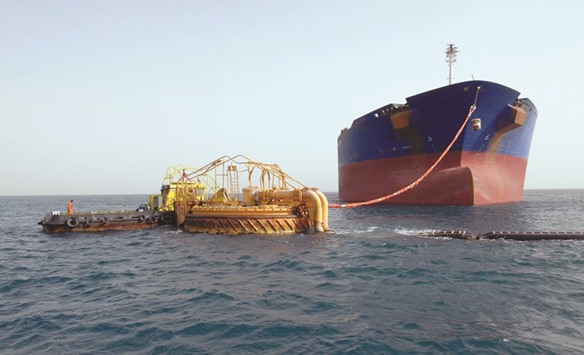Saudi Arabia is planning to sell almost half of Saudi Arabian Oil Co, the world’s largest oil company, Al Eqtisadiah reported.
A 49% stake will be sold within 10 years, according to the Riyadh-based newspaper, which cites an unidentified senior government official. Deputy Crown Prince Mohammed bin Salman said in April that an initial public offering is planned for 2018, or even a year earlier, with the country planning to sell less than 5%.
Saudi Arabia, under pressure from lower crude prices, has been planning the share sale as part of an effort to generate revenue and reform its economy. The government hopes to raise about $100bn from the IPO of its flagship asset. Saudi Arabia’s Public Investment Fund will use the proceeds, and eventually control more than $2tn and help wean the kingdom off oil.
“Going from 5 to 49% is a huge jump but if you do it gradually over 10 years and in small chunks it is possible,” John Sfakianakis, head of economics research at the Gulf Research Center in Riyadh, said by phone yesterday. “The Saudis are looking at their sources of revenue beyond 10 years and they are asking what should we do more to diversify our non- oil income.”
The Saudi government relies heavily on oil sales for revenue, and its finances have taken a blow since prices started tumbling in 2014. Total projected revenue this year, at 528bn riyals ($141bn), is less than half what it collected in 2013, when oil was trading above $100 and made up 90% of revenue. Brent crude, the global benchmark, closed on Friday at $55.16 a barrel.
Taking a company as large as Aramco to the market may pose challenges for Saudi Arabia. Selling any part of Saudi Aramco to the public will require “full audits and a large amount of transparency,” Paul Sullivan, a professor of security studies at Georgetown University in Washington, said by e-mail yesterday. “They would need to audit for the valuation of tangible and intangible assets, such a human capital, pipelines, refineries, information systems, management quality, and good will. Getting such data for an IPO audit will be a massive undertaking.”
Money from a 49% stake sale will be used by the Public Investment Fund on local and international projects, according to Al Eqtisadiah. The fund will play a major role in Saudi Arabia’s new economy, being big enough to buy Apple, Google parent Alphebet, Microsoft and Berkshire Hathaway.
“To buy more shares in Aramco, investors need to see how the first tranche of 5% performs,” Mohamed Ramady, London-based independent analyst, said by phone yesterday.
“The government needs to look at many options for selling more shares, including bringing in strategic shareholders and other international oil companies who will be interested in having a stake in Saudi Arabia’s gigantic oil reserves.”
Saudi Aramco is planning to report its quarterly results starting next year, chief executive officer Amin Nasser said in November. The initial sale will involve all of the company, not just the refining business, he said in October.
“If I were in Chinese leadership, I would want to buy Saudi Aramco,” Georgetown Professor Sullivan said. “What a great way to lock in oil contracts from a massive source of energy for an energy import-dependent country.”
What is even more important than selling Aramco is how the nation uses the funds for investment, he said. “It is like they have this huge inheritance,” Sullivan said. “If they waste it then that is that.”

An oil tanker owned by Vela International Marine, a subsidiary of Saudi Aramco, offloads into a single buoy mooring near the port of Ain Sukhna, Egypt (file). Money from a 49% Aramco stake sale will be used by the Public Investment Fund on local and international projects, according to Al Eqtisadiah.
